#Offa's Dyke
Text
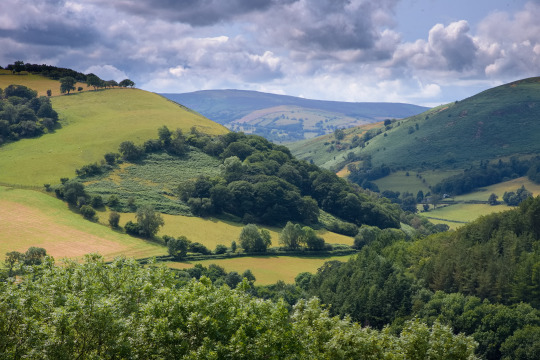
Day 1846, 13 July 2023
100 notes
·
View notes
Photo
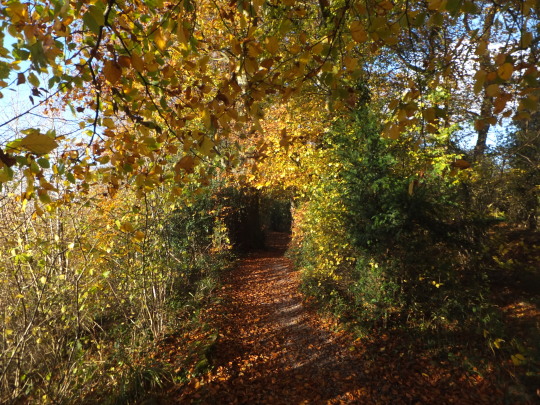
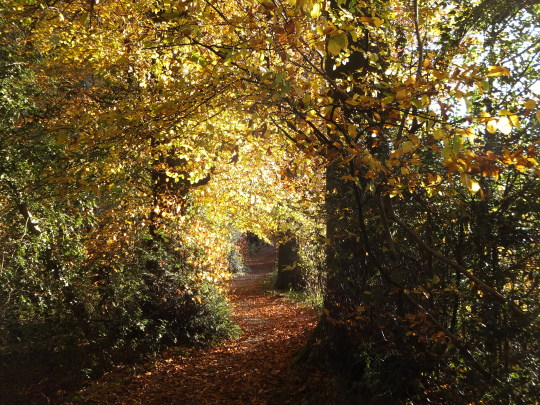
Tunnel into Autumn
#own photo#own photos#autumn#woodland#woods#forest#offa's dyke#english-welsh border#gloucestershire#lensblr#original photography#original photographers on tumblr#leaves#nature#leaf#tree tunnel#trees#hills#wye valley#november
214 notes
·
View notes
Text

Day 1846 - fields near Llangollen
52 notes
·
View notes
Text
they call me the border to Wales and England cause I'm a ridiculously long dyke
11 notes
·
View notes
Video
Road up a Mountain by Tony
Via Flickr:
And still they lead me back To the long winding road You left me standing here A long, long time ago Don't leave me waiting here Lead me to your door
#Clwydian Range#Moel Famau#Offa's Dyke#Wales#britain#europe#geo:lat=53.14875167#geo:lon=-3.25898000#geotagged#jubilee tower#loggerheads#mountain#national trust#panorama#path trail#scenic#summit#©2021 Tony Sherratt
6 notes
·
View notes
Text


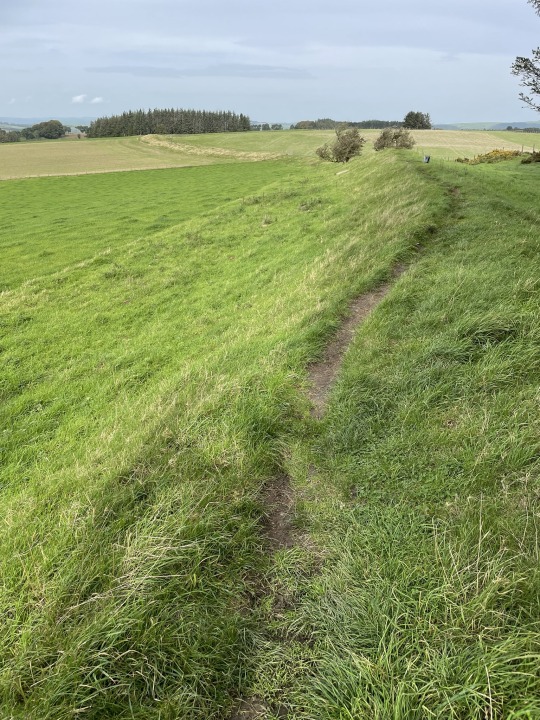
Offa’s Dyke
3 notes
·
View notes
Text
the saes are at it again
spent the last nine hundred years trying to kill our language and are now trying to say that bilingual signs will 'put lives at risk'
god forbid the english have to witness a little bit of welsh after they cross the border

2 notes
·
View notes
Text
Day 90 - Bodfari to Prestatyn
Day 90 – Bodfari to Prestatyn
The original plan was to get to Prestatyn around 3pm, check into our hotel for showers and to abandon our backpacks then finish the trail bagless and in flip flops and ready to pour obnoxious quantities of prosecco into our chops. However, this would mean tackling various hills in heat unbefitting of North Wales so we figured we’d just get there as soon as we could.
Off we fuck then.
The alarm…

View On WordPress
#Backpacking#Lands End To John O Groats#LEJOG Plus#LEJOG+#LEJOG+ Plus#Long Distance Hiking#Offa&039;s Dyke Path#Thru Hiking#Travel#Wanderlust
0 notes
Note
The disrespect toward indigenous peoples is what popped put at me today in one of your posts. I wonder how long the English have been looking down on the Welsh. We're the Saxons like that or is it the Normans who really thought they were better than everyone else. Cause it seems like it goes back a long way.
Oh, both, just in different ways. The Normals were imperialist, the Saxons were more theft and landgrab.
Something that makes me want to start hurling knives is the INCREDIBLY COMMON English myth that the Anglo-Saxons were a sweet innocent indigenous British people who were conquered and bullied by those mean nasty Normans (and Vikings), and because the Normans came over via France, that means everything was actually THEIR fault, and the true English i.e. the Anglo-Saxons, were victims too :(
When I say it's incredibly common, by the way, I really mean it. Enormous numbers of modern day English people believe this. I've seen BBC programs about the Viking invasions that claimed without a trace of irony that the Vikings would take slaves from "the native Anglo-Saxons". I've literally had English people comment this shit on posts of mine about Celtophobia and Welsh history. Like I'm there describing how the last Prince of Wales was locked in a wooden cage in Bristol Castle at the age of eight and lived out the remainder of his life there until his fifties so the Welsh would know their place, and some snivelling English cunt will straight up write a message going "Teehee really it was the Normans not the English though and they conquered the poor Anglo-Saxons too, poor England uwu"
Anyway in the dying days of the Roman empire in Britain one of the leading reasons for Rome abandoning Britannia was the constant waves of Anglo-Saxon invaders. There were so many the east coast of Britain became known as the Saxon Shore. There were so many the Romans built a line of forts that were and are literally called Saxon Shore Forts. There were so many that an official, historically documented, paid governmental position in Roman Britain was the Count of the Saxon Shore, i.e. the guy responsible for keeping the bastards out.
Rome had banned native military, of course, so when they then withdrew and took the armies with them, the people left had no defences against the incoming waves of Angles, Saxons and Jutes. England fell pretty quickly, Angles in the north, Saxons in the south, Jutes primarily in the east, I believe. What stopped their westward expansion was the Brythonic Celtic nations living in modern day Wales. And this is the origin of the Welsh dragon - those separate kingdoms needed a banner that united them, and represented Not Saxon. An anti-Saxon force. They chose a red dragon.
This is also the origin of King Arthur. An anti-Saxon king of the Brythons, who would repel these Germanic invaders. (It was several centuries later that England realised they should probably steal the term 'British', because otherwise they were marking themselves as 'not native'.)
Anyway the saving grace of the Anglo-Saxons in the end was actually that they were whiny little bitches who gave up trying to fight in Wales with its difficult mountains and fought each other instead. The whole sorry tale of the Heptarchy is the various Anglo-Saxon kingdoms fighting like cats in a bag, while Saxon king Offa built a dyke along the Welsh border and went "WELL YOU'RE NOT ALLOWED OVER HERE" and every Welsh king went "...we literally didn't want to conquer you anyway, you spectacularly sad and stupid man"
Oh, and of course, there's the name 'Wales'. Given to us specifically by the Anglo-Saxons. And translated by centuries of English scholars, mostly very smugly, as 'foreigners'. A fun bit of early propaganda, look - foreigners in our own country that they tried and failed to steal.
All of which is a circuitous way of saying - yeah, it goes way back.
2K notes
·
View notes
Note
On the subject of Arthur losing his mother's inheritance, how did the Norman invasion go for him? When he loses yet another identity and a new language slides onto his tongue?
It went incredibly shittily for him. I've read more than one academic that places the birth of British Imperialism in 1066, and I don't think they'd be entirely wrong. For many of the so-called 'high middle ages', sources from Welsh poetry, the Irish Annals or even Scottish records don't describe invasions from England as English incursions into their territory the way we today do. Instead, there's often this sense that 'England fell first.' Because while the Anglo-Saxons had been aggressive with their neighbours, see Offa's Dyke on the Welsh border and periodic problems in Scotland, there's nothing like the dominance we later see. If anything, Ireland, as the centre of Celtic Christianity, had more influence as Scots Gaelic came via Irish migration onto the west coast of Scotland. It's been argued by other academics that the Norman invasion is as equally responsible for the decline of Celtic Languages in England as the Anglo-Saxons themselves were.
But all that said, he spent about ten years in the Mediterranean as the Varangian guard took on a new Anglo-Saxon flavour and became something like the Byzantine Empire marines in addition to the usual sort of Emperor's bodyguard that was traditional. And in the 1070s we have a few scattered references to the first-ever use of a 'New England.' Somewhere on the black sea, maybe Crimea was settled by those English exiles. So Arthur is overseas from about 1066-1075 when there's finally no hope of a return of Anglo-Saxon rule.
He doesn't really lose his Englishness, English remains the tongue of the lower classes, but people stop writing in it almost completely. And a headcanon I've had for a long time is he made Matt learn how to read in English almost immediately after the Conquest of New France because he himself couldn't read Old French or Middle French very well for decades. He loses not an identity but the ability to express that identity.
25 notes
·
View notes
Text

Rating: 4/5
Book Blurb: In this gorgeous stand-alone fantasy romance perfect for fans of Margaret Rogerson and Allison Saft, a rebellious witch undertakes a last-ditch quest to restore magic to medieval Wales—as two princes vie for her heart.
Magic is fading from Wales—choked off by King Offa’s Dyke, the enemy earthworks that spans the entire border. Even the dragons have disappeared. And now an attack is imminent.
Prince Taliesin would love to watch magic die. Prince Dafydd fears it, and the throne. But when their father promises the crown to whichever son can destroy the dyke and restore magic to Wales, the brothers are forced into an uneasy rivalry.
Ffion works hedgewitch magic for poor folk, not princes. Unlike the power-hungry Foxhall coven, she uses only what nature can spare. But when the coven’s greed costs Ffion everything, she will need power beyond her wildest dreams to get back what she’s lost.
So when Prince Taliesin arrives, begrudgingly seeking a witch’s aid, Ffion agrees to help him—even if it means walking from one end of Wales to the other with the most use-less peacock she’s ever clapped eyes on. Even if it means striking a bargain with Dafydd behind Tal’s back. The fate of Wales depends on their quest . . . and so might the fate of Ffion’s heart.
Review:
A beautiful and whimsical story about a witch who will do anything to restore magic to medieval Wales and resurrect her familiar but that means working with the two princes who are vying for her heart. Ffion is a hedgewitch who refuses to be part of her coven, she lives on the fringes with her fox familiar, helping poor folks and not princes. Prince Talieson would love nothing more than to see magic die and wants to take the throne for himself because it's the only way to protect his mother while his brother Prince Daffyd doesn't want the throne at all yet his father wants him for the throne. when king Offa puts forth a challenge: both princes must face off against each other or no one gets the throne at all and chaos will take over, Talieson turns to Ffion to help him and Daffyd goes off to avoid it as much as possible. Tal is determined to win at any cost because nothing matters more to him than protecting his mother from his cruel father, even if it means facing off against his brother. Tal turns to the Foxhall coven, the very coven that Ffion refuses to be a part of that is power hungry and has both her mother and sister under its thumb. When the coven refuses to help him Ffion offers him a bargain: she will help him get to the throne if he helps her restore magic because her familiar was killed by the coven and she is determined to bring him back. Ffion and Tal couldn't be more at odds with one another yet there is something growing between them. However, then there is Daffyd, the prince who has had visions of Ffion since he was young, a prince who feels bounded to her yet Ffion has never met him. With two princes vying for her hand, a mission to restore magic, and a throne to capture. This was a really fun nature-esque witchy read. I loved the adventure the characters went on and I enjoyed the Welsh mythology. I also really liked how the love triangle was done, and Tal (so sweet) was definitely a favorite of mine. The book overall was a fun fantasy read that I think fans of Allison Saft would enjoy!
*Thanks Netgalley and HarperCollins Children's Books, HarperTeen for sending me an arc in exchange for an honest review*
2 notes
·
View notes
Text
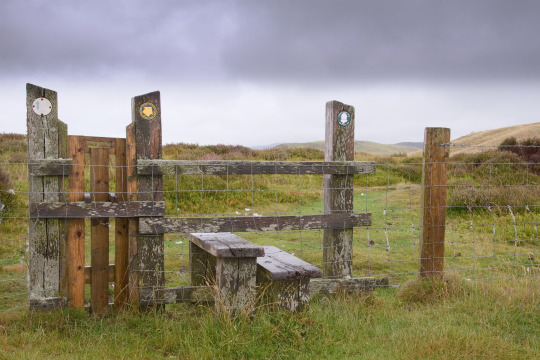
Day 1847, 14 July 2023
13 notes
·
View notes
Photo
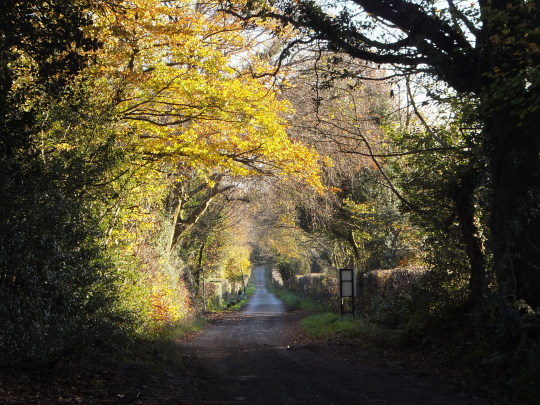
Offa’s Sunset
#own photo#autumn#offas dyke#devil's pulpit#wye valley#england#countryside#lane#woods#forest#trees#gloucestershire#countrylane#rural#woodland#november#leaves#yellow#brown#golden#lensblr#original photography#original photographers
54 notes
·
View notes
Text
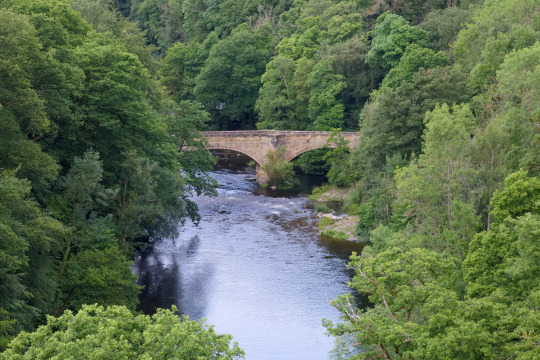
Day 1846 - bridge over the River Dee from the Pontcysyllte Aqueduct
#Wales#Cymru#bridge#river#trees#dee#offa's dyke#walk#walking#hike#hiking#landscape#uk#1846#Pontcysyllte Aqueduct
37 notes
·
View notes
Text

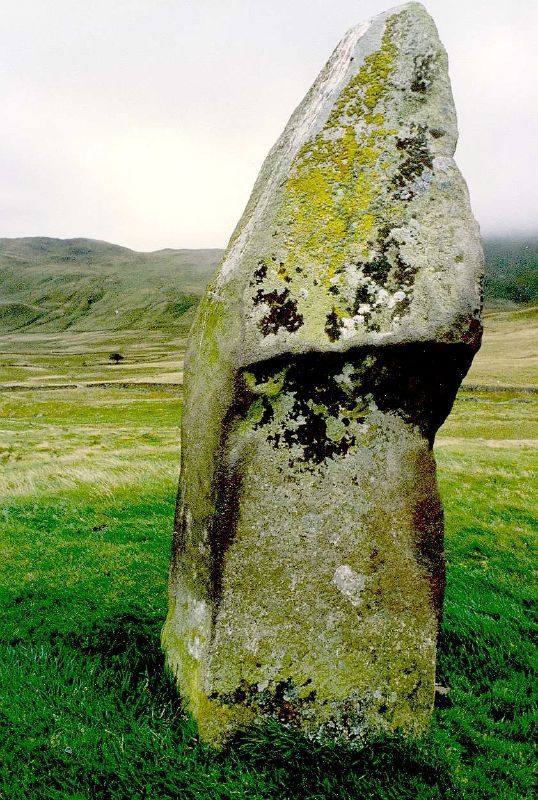


Wales (2) (3) (4) by tina negus
Via Flickr:
(1) The view down the valley from the top of Horseshoe Pass.
(2) A standing stone close to the Ffordd Ddu (the Black Road) on a hillock above Arthog, North Wales.
(3) Offa's Dyke Path.
(4) Nevern yew, one of the "Bleeding Yews."
4 notes
·
View notes
Note
3, 8, and 21 for England?
3. How do they put themselves to bed at night?
Some nights, England falls asleep anywhere but his bed. At his desk, weary and head heavy - or more likely on the sofa, TV still singing tell of misfortune and weary things that haunt England until his waking moments. Yet, there are tender moments - when he finds the will to creep up to bed and read, patiently waiting for Portugal to return home to him, refusing to fall asleep until he has his arms around his husband and is tenderly kissing him goodnight. He’s the sort to fall asleep reading sometimes, dozing with his head thrown back against the headboard (and then wake up wondering why there’s such a terrible crick in his neck).
8. What were they told to stop/start doing most often as a child?
They’ve stopped and started many things whilst growing up.
England was malleable as a child - prone to following in others footsteps, trying to find a ahndhold in a world that felt too dangerous for him. I think one of the things, however, that his father Wessex told him to stop doing was stop being so gullible. It was an important lesson, one that England learned early on in his life. Stop believing everyone at face value, be wary and be ready to take advantage when a situation turns; While it may seem harsh to modern ears, Wessex wasn’t entirely in the wrong. Anglo-Saxon England was a myriad of kingdoms - the most well-known and the famous ones (listed in the ‘Heptarchy’) are just the tip of the iceberg and it wasn’t uncommon for there to be conflict and difficult politics when it came to heirs, who were chosen via a ‘moot’ rather than being handed down.
England learned that it was important to play your cards right. Mercia taught him that sometimes it was important to compromise (Offa’s Dyke, the begruding peace between Mercia and its Briton neighbours - it could no longer send men trying to invade their kingdoms, so the dyke was constructed to finally mark the border between Mercia and them). While England certainly hates compromising and hates not meeting his goals, there’s no doubt that he’s willing to step back if it means that he’ll later on succeed.
21. Why do they get up in the morning?
It’s what he’s always been doing for centuries. Getting up, constantly living - constantly moving forward and trying not to think about the past, living only in the future. It’s only recently that he’s stopped to ponder the present and how he has shaped it, as much as it shapes him; England gets up slowly and sluggishly, because it’s what he’s always done. The mundanity of it is something that scares him sometimes - used to paralyse him and trigger him into action when he was younger, but now it is something that he simply accepts. He has to get up, thats just how it is.
6 notes
·
View notes